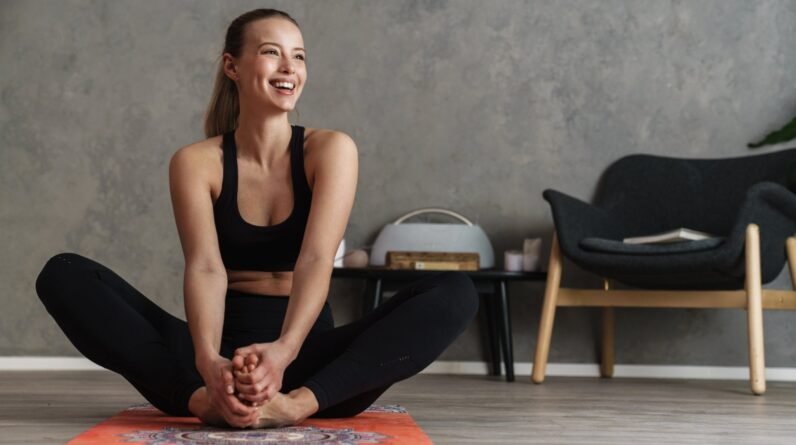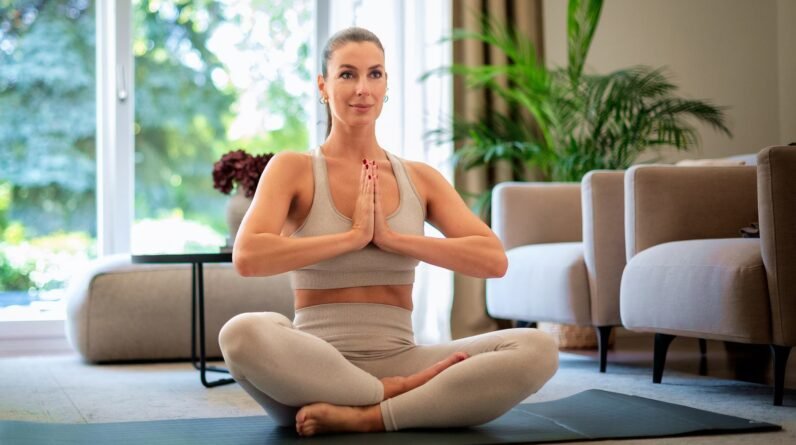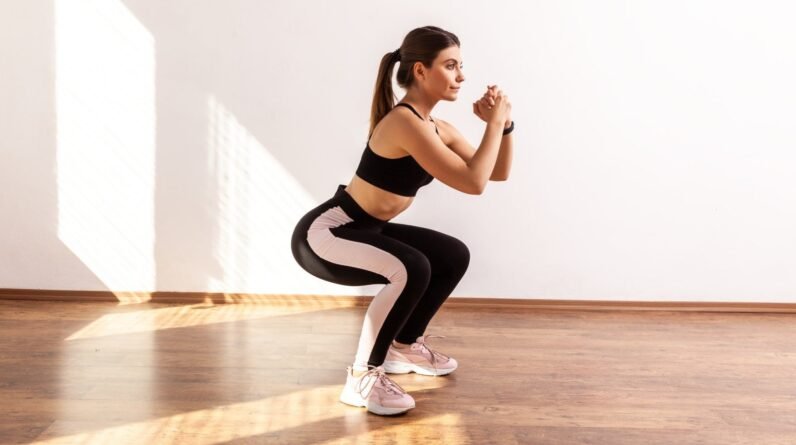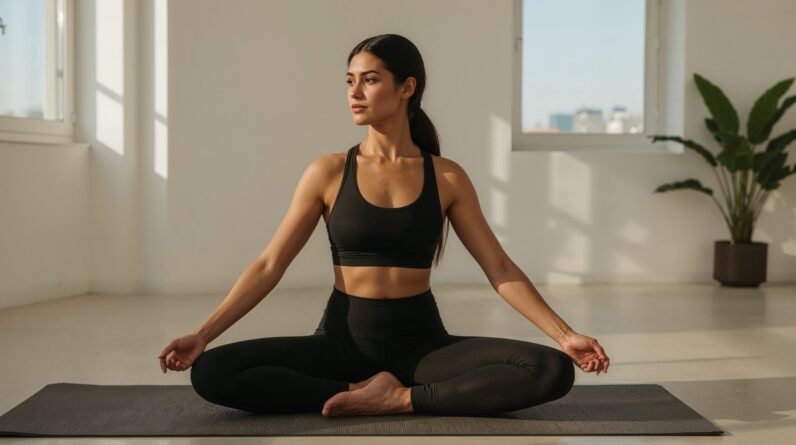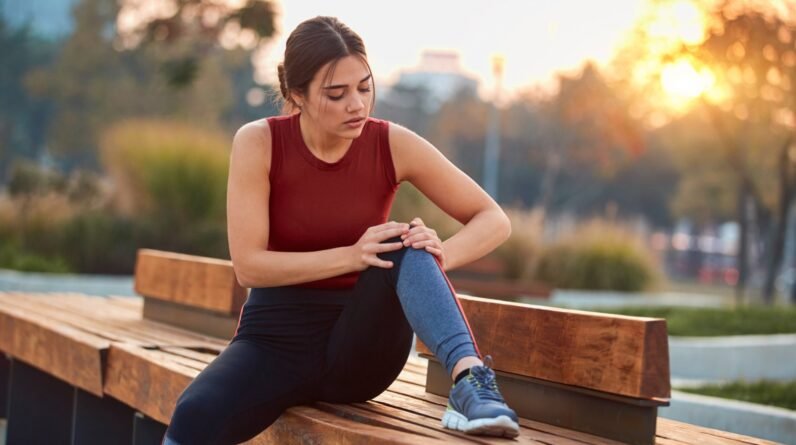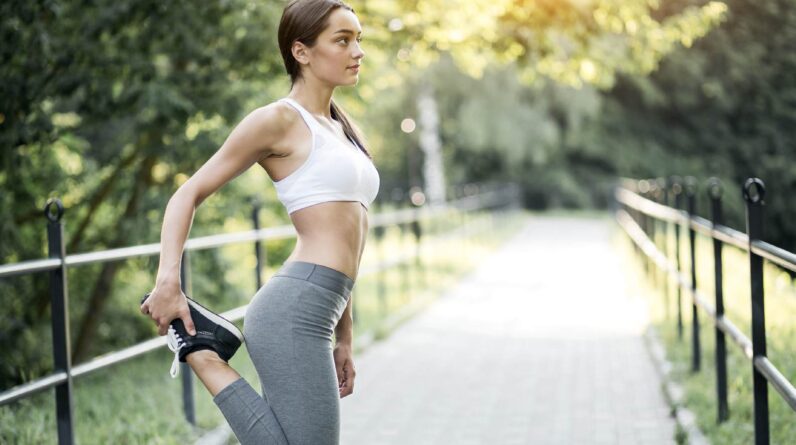
Butt kicks effectively engage the lower body muscles. If you are a beginner, you can start with butt kicks to strengthen your lower body. Here’s how to perform it correctly.
Runners often include butt kicks in their warm-up sessions. The exercise helps to improve flexibility and form. It is also a good workout that helps strengthen the hamstrings. While there are different variations of squats and lunges to strengthen your lower body, beginners should try butt kicks for strengthening their lower body. The best thing about butt kicks is that you can do it anywhere, making it a versatile and convenient exercise. Butt kicks are not just meant for the tracks. You can do them in gyms or even within the comfort of your own living room. Here’s everything you need to know about butt kicks and how to do them right.
What are butt kicks?
Butt kicks are a dynamic exercise that involves touching your buttocks with your heels. This movement is commonly executed as a jumping exercise, where people propel themselves upward while bringing their heels towards their buttocks, explains fitness expert Rhea Shroff Ekhlas. However, there is also a non-jumping variation of this exercise, where individuals perform the motion without leaving the ground. Jumping or non-jumping, both engage the lower body muscles and can be tailored to suit individual preferences and fitness levels.

How do butt kicks help to tone the lower body?
Butt kicks are highly beneficial for the lower body, primarily because it activates your hamstrings effectively. This exercise also works the quadriceps and calves, especially if you jumping while performing it . Incorporating butt kicks into warm-up routines, particularly in the non-jumping form, is an excellent strategy as it activates the hamstrings while preparing the body for more intense physical activity, says the expert. But it is important to note that relying solely on butt kicks for a complete lower body workout is not adequate. By incorporating butt kicks into a well-rounded exercise routine, you can tone your muscles and improve lower body strength.
What are the health benefits of butt kicks?
Butt kicks not only helps tone your lower body, this exercise can be beneficial in several ways:
- If you start your day with running, butt kicks can help you gain better form and increase the speed of hamstring contractions. This may even help you in running faster.
- Butt kicks engage the cardiovascular system while enhancing and contributing to better cardiovascular fitness and endurance.
- If you incorporate arm movements while doing butt kicks, you can further engage the muscles in your core, arms, and back, effectively turning the exercise into a full-body workout.
How to include butt kicks in your workout?
Incorporating butt kicks into your workouts is an effective way to enhance your fitness routine. There are two primary methods to include butt kicks:
Also Read

1. Warm-up routine
Butt kicks can be integrated into your warm-up regimen to activate the hamstrings and prepare your body for exercise. This can be done with or without jumping, depending on your preference and fitness level. Including butt kicks in your warm-up routine helps to warm up the muscles, increase blood flow, and lower the risk of injury during a workout, says Ekhlas.
2. Cardio session
Butt kicks can also be incorporated into a cardio session. By performing butt kicks alongside other cardio exercises such as jogging, jumping jacks, or high knees, you can elevate your heart rate, burn calories, and improve cardiovascular endurance. This adds variety to your workout while targeting different muscle groups, contributing to a well-rounded fitness routine.

How to do butt kicks?
To perform butt kicks, follow these simple steps:
1. Begin by standing with your feet about hip-distance apart, keeping your arms relaxed at your sides.
2. Slowly lift your right heel towards your buttocks by contracting your hamstring muscle, bringing it as close to your buttocks as comfortable.
3. Lower the ball of your right foot back to the ground and then repeat the motion with your left heel.
4. Alternate between lifting your right and left heels towards your buttocks, gradually increasing your speed as you become more comfortable with the movement.
5. As you pick up the pace, it should feel like you are jogging in place with your heels touching your buttocks alternately.
6. For an added upper body workout, coordinate the movement with your arms. When your left heel kicks your buttocks, pump your right arm forward at a 90-degree angle, and vice-versa.
7. Try to do for at least 30 seconds, focusing on maintaining a quick leg turnover.
Glutes workout at home: 5 gym alternatives to tone your butt
As you progress and build your fitness level, you can extend the duration of the exercise for a more challenging workout, says the expert. But avoid overexertion and gradually increase intensity.
Those with knee issues or sensitivity to high-impact exercises should exercise caution while performing butt kicks. The jumping motion involved in butt kicks can put additional strain on the joints, potentially causing discomfort. In such cases, avoid this exercise to prevent further injury or discomfort.



